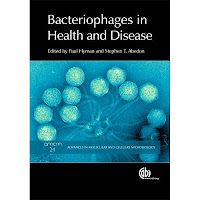 Lindsey Knapp spent this past summer in California conducting research at UC Berkeley as part of a National Science Foundation funded research program. Many of our students gain valuable experience in these REU programs, which typically accept applications starting in January or February of each year. You can search these programs and learn more about applying here. Lindsey wrote the following about her experience and provides some tips for a successful application:
Lindsey Knapp spent this past summer in California conducting research at UC Berkeley as part of a National Science Foundation funded research program. Many of our students gain valuable experience in these REU programs, which typically accept applications starting in January or February of each year. You can search these programs and learn more about applying here. Lindsey wrote the following about her experience and provides some tips for a successful application:My summer Research Experience for Undergraduates (REU) at University of California-Berkeley was a great experience that provided me with professional development skills, gave me a preview of my future career, and allowed me to network with a variety of biology students and professionals. I worked in David Weisblat’s Lab in the Molecular and Cellular Biology Department funded by a National Science Foundation (NSF) grant. My project focused on the gene piezo and its role in development and mechanotransduction in the leech Helobdella.
I found this REU on the NSF website along with other NSF funded programs. After applying to many programs, I was accepted into four great programs and chose Berkeley. I was in the Berkeley REU program with 10 other students from around the country and the world. My responsibilities were the same as a graduate student. I was given a project and a mentor who was familiar with the project and techniques needed to pursue it. I implemented experiments independently throughout the summer. At the end of the summer my cohort and I gave presentations on our projects including an introduction to the topic of research, the experiments we ran, and our results
Throughout the summer there were a variety of professional development workshops on several topics including graduate school applications, science careers, scientific ethics, and public speaking. We also got to meet, interact with, and attend lectures from amazing scientists such as Tyrone Hayes, a world expert on fertilizers’ affect on the endocrine system, and Robert Full, a biophysicist who helped make movies such as “A Bug’s Life” and “Kung Fu Panda”. In addition, we were able to learn about hyenas at the Berkeley field station and go whale watching in the Pacific Ocean.
This REU prepared me immensely for my future education and career. I am going to pursue a Ph.D. in Developmental Biology and go on to work in an industry or government lab. The experience of implementing my own experiments and troubleshooting for my own research project is invaluable. In graduate school I will essentially be working on a project of the same caliber, but with more freedom and independence. The skills I learned this summer will help me succeed in graduate school. Success in graduate school will ultimately help me procure a research focused job.
During the application process, I would suggest that science majors apply for many different programs. There are hundreds to thousands of qualified applicants applying for each program. Make your application stand out by writing essays with personality and get good letters of recommendation from professors or professionals you have worked with. Be thorough but precise in your application, and do your best.
 |
| Lindsey presenting her summer research |








